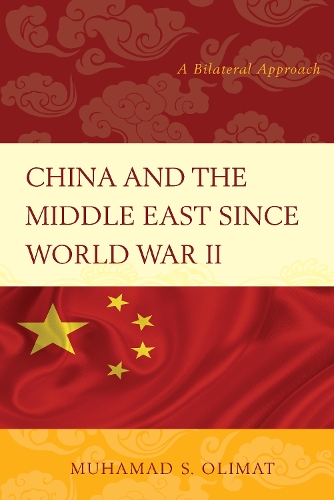
China and the Middle East Since World War II: A Bilateral Approach
(Paperback)
Available Formats
Publishing Details
China and the Middle East Since World War II: A Bilateral Approach
By (Author) Muhamad S. Olimat
Bloomsbury Publishing PLC
Lexington Books
22nd April 2016
United States
Classifications
Professional and Scholarly
Non Fiction
International trade and commerce
Public international law: economic and trade
327.51056
Physical Properties
Paperback
344
Width 151mm, Height 230mm, Spine 25mm
526g
Description
This book examines Sino-Middle Eastern relations on a bilateral level since World War II. It highlights the depth of Chinas involvement in the region with each country on a five dimensional approach: energy security, trade relations, political relations, arms sales/security cooperation, and cultural relations. Regarding each of these criteria, the Middle East holds a strategic significance to Chinas national security, vital interests, territorial integrity, sovereignty, regime survival, and economic prosperity. China has been an integral part of the political developments on the Middle Eastern political scene. It has supported the regions quest for independence and national liberation, exchanged diplomatic recognition with the region and established political partnerships with the Middle East. Trade relations are an essential element of Chinas involvement in the Middle East. Their bilateral trade volume exceeds $220 billion annually, and is steadily heading toward $500 billion by the end of 2015. The Middle East supplies fifty-four percent of Chinas energy needs, and is expected to provide seventy percent of Chinas imports by 2020. Energy security has become the core of Sino-Middle Eastern relations and the main goal of its increasing involvement in the region. China has also become a main source of arms sales to the region. The Middle East influenced Chinese culture and language immensely, simultaneously, influenced by Chinese culture, traditions and customs. Apparently, the peoples of the Middle East are enthusiastic about Chinas role in the region. However, the American so called pivoting out and Chinas imminent pivoting in brings tremendous levels of anxiety in the region. A similar situation occurred a century ago, when the people of the region, the social and political movements in the Middle East, and the governments of the region, solicited and welcomed the American involvement in the region, something they deeply resent and regret. China seems to be going through the same path, and the people of the region have begun to scrutinize its presence. If Beijing continues its inconsistent policy in the region, its injudicious support to autocracies, it will defiantly mobilize popular resentment against its involvement in the Middle East. Therefore, its presence might not endure in comparison to the American, British, or French presence in the Middle East.
Author Bio
Muhamad S. Olimat is associate professor of international relations and Middle East studies at the Institute for Civil and International Security at Khalifa University for Science, Technology, and Research.
